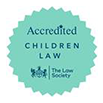What is an Article 2 Inquest?

An inquest is an enquiry into the circumstances of a death where there is a suspicion that the death has resulted from anything other than natural causes. Where the deceased was in the care of the State at the time of their death, an Article 2 inquest must be held. Both types of inquest must answer the question ‘how’ someone died. For traditional inquests “how” someone died meant “by what means” the person came by their death. For an Article 2 inquest “how” also includes “in what circumstances”. An Article 2 inquest will cover more issues.
The Right to Life
Article 2 of the European Convention on Human Rights concerns the Right to Life. If there is suspicion that a death resulted from the State breaching its duty to protect the deceased against a human threat or other risk, an Article 2 or an enhanced inquest will take place.
Article 2 inquests must be held where a non-natural or violent death has occurred:
- in a prison or police station
- during arrest or search
- as a result of a police shooting
- in an immigration detention centre
An Article 2 inquest might be held where it is suspected there has been:
- a failure to provide correct equipment or follow procedures which may have resulted in the death of a member of the armed forces
- a failure by hospital staff to recognise suicide risk and taken steps to prevent it
- an unsafe procedure carried out in a hospital that may have resulted in death
Determining the type of inquest
If a Coroner has not identified what type of inquest is to take place, submissions can be sent to the Coroner by the family, setting out why they consider an Article 2 inquest is required. This might be appropriate where, for example, there has been a death in a State hospital as a result of suspected medical negligence.
The purpose
Enhanced and traditional inquests are fact-finding procedures that seek to establish the who, how, and how, when, where, and the medical cause of death. Article 2 inquests place more emphasis on how the death came about and in what circumstances. To answer these questions, a wider range of evidence can be considered. The family will also play a more pivotal role.
Interested parties
Only parties identified as “interested persons” by s47(2) Coroners and Justice Act 2009 are allowed to attend an inquest and this includes members of the deceased's family. It is usual for one member of the family to be identified as the person who will represent those interests. Anyone falling outside this bracket can only attend if requested or summonsed by the Coroner. If you think you might be an interested person, you should consult a solicitor to discuss how you could be represented at the inquest.
When might a jury be involved?
Article 2 inquests frequently involve a jury and inquests must have a jury if the Senior Coroner has reason to suspect:
- that the deceased died whilst in custody and either the death was violent or unnatural or the cause of death is unknown
- the death resulted from an act or omission of a police officer or a member of a service police force during the execution of their duty
- the death was caused by a notifiable accident, poisoning or disease
Conclusions
At the end of the inquest, the Coroner will deliver their Conclusion (formerly known as a Verdict). They can also issue a Preventing Further Deaths Report containing recommendations to prevent similar deaths occurring in the future.
Why do I need a lawyer?
Preparing for and attending an inquest can be a daunting prospect. At Scott-Moncrieff & Associates, we can help with the pre-inquest preparation. This can include drafting submissions setting out:
- Why, if the inquest has not been identified as an Article 2 inquest, an Article 2 inquest should be held
- Any questions the family might wish the Coroner to raise with the witnesses.
- We can also obtain a copy of the medical notes if the death occurred in hospital and apply to the Coroner to obtain a copy of the evidence to be heard at the inquest.
At the inquest
Whilst a family member can represent themselves at an inquest, our experienced team are specialists in framing questions to establish facts rather than seeking to establish liability or blame.
Once the evidence has been heard, the Coroner can issue Directions setting out the questions they propose putting to the jury to help them determine how the deceased came to their death. At that stage, we can make submissions on your behalf in response to those Directions.
Contact our Inquest Lawyers, London
Our specialist inquest lawyers can help you throughout the whole process. We understand how difficult this situation is for a family and will do all we can to ensure that the inquest gives you the answers that you need. Please get in touch via our online contact form or call us on 020 3972 9011 to see how we can help you.
By accepting you will be accessing a service provided by a third-party external to https://www.scomo.com/









